|
Has this happened to you? “I took groceries to my Mom. She wanted have coffee with me. I’ve tried to tell her I couldn’t, but she just doesn’t get it! I don’t know what to do”!
Caregiving is a demanding process and Covid-19 adds more demands. Caregivers still try to respond to their loved ones even under new circumstances. In the past, the caregiver could might take the elder shopping; not now. Shopping was an outing, a chance to socialize, and a chance for the caregiver to assess how the elder was doing. Now, we wear masks and are encouraged to shop as quickly: a-l-o-n-e. We only have a fleeting glance at our loved one on food drop-off. We can’t just pop in the house or care facility to check on things for ourselves. We must rely on reports from our loved one, the staff or (sometimes) the news. Imagine reading the news and learning your parent’s facility has a Covid-19 outbreak! Caregivers revealed they felt guilty before, it’s especially true now. Some guilt seems to be rooted in the feeling, “I can’t do anything!” Yes, you can. Caregivers used to worry about elders taking medicine properly or eating regularly; now worries include possible exposure, illness & death. To add to these concerns, seniors seem to want more from the caregivers. They ask caregivers to run more errands or ask for things not appropriate to their diet or welfare. An elder asked me to try to take money out of an ATM with his bank card! Why are elders making more or different or even illegal requests? There are a couple reasons. First, caregivers make the distinction between the Covid-19 as the cause and the changes in our lives as the response. Sometimes, that distinction is not as clear to the elder. “They just don’t get it”; is a sign to caregivers that the senior hasn’t understood in the first place. Everybody has studied something that felt very different when actually experiencing it. Think of your first time behind the wheel of a car. No instruction manual prepared you for that feeling of your foot on the accelerator. Childbirth classes help, but they can’t communicate what it feels like to give birth to a child. After the experience, we “got it”. Making it real,related to the senior’s early experiences, helps them to “get it”. Second, caregivers understand the impact of this pandemic process. So, instead of doing more errands, we need to take the time to help seniors grasp the process. We feel guilty because we can’t take them out, or can’t give them a hug. So, when they ask for more and more, we do it because it makes us feel better. Have you noticed that more errands just aren’t enough? That’s because errands don’t fill the senior’s real need: finding meaning and support. A conversation, in which you focus on their early experiences, such as quarantine, helps them feel the reality of current circumstances. Explanations don’t work as well as a trip down memory lane. Just making the effort to help them understand the experience will fill their need for direction and support from you. Your senior relies on you in ways they can’t express. When they feel like the world has gone crazy, they look to you. When you show effort to help them understand (not expertise) they become calmer and you’ll feel better too. Third, just saying NO, puts limits into their lives and is another way to calm your senior. When times are uncertain, a clear guide creates a sense of stability. They sense that you are looking out for them and you are their leader through these times. Your firm guidance gives them clarity. Then, you have more time and the emotional space to feel less guilty. Caregivers need not do e-v-e-r-y-t-h-i-n-g; just the right things. Fourth, a rule of thumb for elders with dementia is; the more dementia, the longer “emotional antennae”. Your seniors are highly attuned to your moods. They just can’t process the information the way they used to. Covid has shifted everyone’s life. Elders sense that you are struggling to adjust your lifestyle. Caregivers may not want to show these struggles. They feel guilty these the elders depend on their care. The elders already know. When you put words on your feelings, it’s like putting on an oven mitt; now you can handle hot stuff. Your words become the elder’s way to express their own feelings. Keep it simple but keep sharing. Remind them of any major adjustments they had to make in the past: WWII rationing, Great Depression job losses. Emphasize how they made it through hard times and the example they were to you. Thus, the caregiver becomes the mirror that reflects the senior back to their best self. Finally, remind the elder this is only for now, it will not last forever. As the old song says: “Some day; s-o-m-e-d-a-y, we’ll be together (yes we will)!
0 Comments
The Strange Psychology of Stress and Burnout, which appeared in BBC WorkLife’s November 17, 2019 post, discusses the relationship of stress to Cortisol; important. The article described several results or diseases that begin with exposure to prolonged stress. It also mentioned some situations that can cause stress but left one out; caregiving! Already, 34.9 million people are self-identified caregivers. In addition, some people are starting to do caregiving and don’t realize they’re in this new role; yet.
This article shows the photo of a man; yet 66.5% of caregivers are women. The photo shows multiple phones. Yes, many caregivers have spent time on the phone to coordinate care for the elder. However, caregivers face the competition of simultaneously dealing with home, job, and possible child care while doing caregiving! The focus of the article is on job-related stress. Caregivers bring their stress to work with them. Thus, what looks like job burn-out might be a result of simultaneous stressors; job and caregiving. The remedy described in the article involves changing the perception of the person under stress; Cognitive Behavioral Therapy and changing jobs or shifting responsibilities. Sadly, these are not usually available to the family caregiver. She may not have insurance coverage for therapy. Group insurance plans may not recognize family caregiving as a stressor worthy of intervention. How does the working caregiver access therapy? She has no “off-duty” time. She goes from the career job over to the home “job”. It’s time for all of us to make sure caregivers as SEEN and heard. The Reuter's article, U.S wages lost to unpaid family care to hit $147 billion by 2050, describes lost wages and pressure on caregivers to switch to part time work or quit all together. These are definable numbers which the article describes well. One doesn’t hear enough about these issues and costs in the news media. I call upon anyone who knows a caregiver to insist on better public discussion on these caregiving issues/ costs/pressures.
I've always worried that caregivers also lost opportunity as well as wages. They are less likely to be offered new projects at work which can polish one's resume. They can’t take the lateral move which puts the employee in line to move up in a branch of the organization. A promotion comes with more demands on time and a different schedule. How can the working caregiver manage that? Promotions may mean a move out 0f town; how does a caregiver juggle that? So less chances to rise in a career. In addition, caregivers suffer hidden damages to their careers. Just taking repeated PTO (Paid Time Off) casts a shadow over one's career. Eventually, PTO runs out. When PTO runs out, the employee is left with FMLA (Family Medical Leave Act). That is usually unpaid. The employed caregiver must consider loss of income along with caregiving pressures. I'm also a member of Society for Human Resource Management (SHRM), and read their daily dispatches. It appears that employers are more comfortable allowing the employed caregiver a block of time, like a week or two, to handle a health crisis. Piecemeal time tracking is another matter. There are some tracking systems, however, these seem to be evolving methods. The employed caregiver may need to use her time in piecemeal form. Perhaps she takes her lunch time to supervise the elder taking medications. Her commuting time would be deducted from PTO or FMLA That's the typical shape of elder caregiving, a mosaic of times and tasks squeezed together throughout the day. So both the employed caregiver and her employer are both carrying this process. The caregiver is doing the tasks and the HR manager is handling the administration. This produces an implicit time cost to the employer. Why would the caregiver’s boss consider her for special projects, a move, or a promotion? These would demand more of her time and the employed caregiver doesn't appear to have any time. In order to develop one's career, one must appear to be ready and willing as well as able. No employer really knows whether any employee is truly available. However, a string of PTO/FMLA requests create an image of less availability. It’s a subtle form of job “loss” that doesn’t show on the paycheck. Only the US and England have a patchwork-to-none system for dealing with our aging population. Other European countries have created caregiving support systems. Why aren’t we looking at them? As we approach the holidays, we consider visiting elderly relatives or arranging for them to visit us. While I cannot offer a guarantee of a pleasant visit, here are a few things to keep in mind to avoid some of the pitfalls
HAPPY HOLIDAYS! When families gathered on Thanksgiving day, some realized that their senior was not the same as last year. Families often respond by doing internet research. The internet is a good first step. However, some sites make outlandish claims. I saw one that offered a treatment that “cured Alzheimer’s”. There is no cure and some of these sites can offer dangerous suggestions.
Here are a few reputable sites that offer reliable information: Alzheimer's Association. This site also has a page devoted to explaining the different types of dementia. It also lists other physical conditions or environmental conditions that can look like dementia. American Society on Aging. It can feel encyclopedic in size. The society has done decades of research and offers reliable information. It’s a good second step. AARP offers many programs and information for families as well as seniors. Each state has a chapter with offices in each area. Look up your state to find help in your area. And Senior Sidekicks offers a course; Preparing to Parent Your Parent, to prepare families for the practical issues they will face as they become caregivers. Contact us about teaching this course in your church or at your job. Call (217) 787-5866 or email us for more information. How do you know when this old house is the wrong house now? Seniors who are reluctant to move may refuse to leave. One senior refused to leave her old neighborhood even though the neighborhood had changed. As she left for church one morning, she was shot in the heart by a stray bullet. Waiting to move until there’s a crisis means the senior loses control of the move. The senior who was shot was moved by others. They didn’t know what she had wanted to take with her; she lost some things which made her very sad. Taking your senior on a decision-making journey helps them to see for themselves that things have changed. A senior realized a move was necessary when she needed more medical care. The house by the lake was too far away. She spent anxious moments waiting for first responders to arrive when she was in need. A house is not a home, even though some seniors think they’re the same. One senior wanted to keep e-v-e-r-y-t-h-i-n-g, including the china hutch. She measured her new apartment to show it would fit. However, the movers couldn’t get it through the front door. Perhaps it doesn’t fit after all. What else won’t “fit”? We move into a house and we make it a home. What’s really important to your senior? It’s probably not the kitchen sink or the screen door. Important things, like photos and mementos, can go anywhere. These can go to the next housing phase. Senior won’t lose the important things: their history. One family referred to the next phase of housing as a new “home”. Their senior dug in her heels and refused to do anything! The family called for my help. I asked the senior to define the word “home”. She described an early 20th century county old age home! I explained that the last of those had been torn down years ago. I offered her a different option; her own apartment with indoor mail box and a grounds crew to mow and shovel. She was willing to learn more. How has your senior’s old neighborhood changed? Sometimes they need to see it for themselves. I took my Grandfather out to his front porch. Together we remembered the old neighborhood. He talked about the people who once lived there, the streetcar track, and the horses stabled at the end of the street. Each time I asked him, “Where are they now?” At the end he was silent for a moment. Then he said;”They’re all gone”. I offered that if all the people and horses had left, maybe it was OK for him to move on as well. “I like my front porch!” my Grandfather said emphatically. “You’re right; your next place MUST have a front porch!” I said just as emphatically. Then my grandfather pointed to the two trees in the front yard. “I planted those to shade the house”, he said. “They do a great job”, I told him. “100 years from now, they’ll stand as a testament to your efforts”. Referring to changes as; the next phase of life, works better than to call it; giving up your home. One of my clients was forced to move when she was robbed at home, twice! Even so, she was very upset about leaving. I took her for lunch and a tour of a senior apartment building. She gazed in awe at the beautiful chandelier in the lobby. She did a double-take when a uniformed waiter asked for our luncheon order. After lunch, we toured several apartments. As we drove back to her house I asked her what she thought. “It looks so nice”, she said, “When can I move?” Another senior had been a great gardener. He was unhappy about leaving his garden. I contacted a newly-constructed facility and asked about gardening plots. On our tour, they pointed out future space for residents’ gardens. The senior explained that the area had too much shade and offered another part of the yard. Since the plots were not yet set, the staff agreed to consider his idea. He would be their gardening consultant! He moved. Seniors may see a change of housing as a loss of who they used to be; show them how they keep their interests, their memories and mementos. If you would like our Free Has Your Senior Outgrown The House? Checklist please check mark your request below, and submit. One of my patients recently complained. I asked her what her doctor said. She told me she had forgotten to tell her doctor. She told me that she had become used to the problem and “accepted” it. Many senior-related articles advise writing down symptoms and questions before visiting the doctor. Good advice; as far as it goes. It’s the stuff that falls off the radar that could be the most important. The doctor needs information from the patient or the patient’s advocate. That information is the basis to decide which questions/tests to pursue.
What kind of information doesn’t get to the doctor?
Age is a stage of life, not a diagnosis. Sadly, some seniors think is a diagnosis. Seniors may accept pain or changes in their bodies as “just getting old”. Pain is a symptom. It’s our body’s way of telling us (at any age) that something isn’t working. Please take your senior’s complaints seriously, even if all they say is; “I don’t feel good.” That complaint is a place to start. Repeated complaints indicate a persistent problem. I use three points to examine complaints: frequency, intensity, and duration. How often do they complain? How long have they complained? Do they report things are worse or better than earlier? Doctors analyze these kinds of information to help them decide what questions to ask next. Please complain; it’s helpful.
Some seniors believe they shouldn’t complain. You may need to explain to them that this is a report on their health rather than an annoyance. Some seniors complain without words. Does the face contort? Does the voice tighten? Do they seem more irritable at certain times of the day? Something’s going on. Ask them to please complain to you out loud. Earlier this year I knew something was “off” within me. I went to the doctor but the lab tests were inclusive. Nevertheless, I persisted. I tracked what I felt and when. I brought this information back to the doctor and insisted on considering other options. Eventually my pattern was clear enough to prompt the doctor to ask other questions. I received a new medication and it worked! I complained, but really I was advocating for myself. Some seniors cannot self-advocate. That’s why caregivers are so important. Please persist if the first treatment doesn’t work. Please complain for them. By the way; this is a portion of my course; Preparing to Parent Your Parent. Senior Sidekicks can bring this course to your church at a time convenient to you. Imagine you’re sitting quietly in a meeting or religious services; suddenly your heart starts pounding. You feel like your blood is coursing through the veins in your arms and legs. It’s bewildering and scary: Why?! There is nothing about this setting that calls for such a reaction. Yet, you have this reaction. It is important that caregivers understand what leads to this reaction and what they can do about it.
It’s a “fight or flight response gone wrong. It developed when we had to run away from Saber Tooth Tigers. Our ancestors were successful, that’s why we’re here. Those ancestors passed down to us their methods of coping with their world. Our modern world doesn’t have the same kinds of stressors, especially for caregivers. Our stressors are less clearly defined And they last longer. Our stressors change shape; one minute we’re dealing with the house-the spouse-the kids-and-the job. Then there’s a crisis and we’re caregivers for Mom! From that point forward, our caregiving increases but with no way to know when the need will become greater or how long caregiving will last. Our bodies respond as our ancestors’ once did; we produce Cortisol to rise to this crisis. The process goes like this: Stress causes the Hypothalamus to secrete. That triggers the Pituitary Gland to secrete. The Adrenal gland secretes Cortisol. This process has several names: HPA Axis, HPA Cascade or Syndrome X, or AKA Insulin Resistive Syndrome. (Wouldn’t it be helpful if we could all agree on one name?) It’s not the crisis that’s the problem. It’s the crisis that doesn’t end that creates bad effects on caregivers. The effects show up in different ways. Cortisol encourages promotes fat deposits in the outer layer of the body, especially the waist. Some caregivers gain weight. We can measure this effect by doing a BMI (Body Mass Index). Other caregivers have different conditions; heart disease, Type-2 Diabetes and Stroke. We can measure Cholesterol levels through a C-Reactive Protein lab test. We can also do a cheek swab to check Cortisol level. However, how many doctors don’t even ask patients if they are caregivers. The tests are there but they are not used to evaluate identified caregivers at this time on a general basis. You need to ask for them. When our bodies rise to meet a crisis: they must also let down. Even Saber Tooth Tigers would give chase and then give up. The caregiver’s duties do not end the same way. In fact, they do not “end” unless we place some “ending points” into the caregiver’s life. That is the role of self care, to provide end points such as respite and small moments. That’s why it’s necessary to spread the caregiving load so it doesn’t fall on one person. That is why we need to enlist family to give caregivers this kind of support. Otherwise, the caregiver can be sitting quietly in religious services and the Cortisol response “alarms” for no exterior reason. We need to advocate for caregivers to be recognized in the medical arena. Learn more by taking our course; Preparing to Parent Your Parent. When someone advises you to, “take care of yourself”; that doesn’t explain how. Elder caregiving is so new that some methods are still under development. However, we know some things that work and some to avoid. Self care does not mean a day at the spa. For many caregivers such a day would be out of reach financially or out of time to devote to a spa. Therefore, plan to care for yourself in moments, not hours. Think about your life like your heart; it beats all the time. Actually your heart takes a tiny rest between each beat that allows it keep going. When you care for yourself in moments, you pause and continue.
Try these ideas. Put up a sign saying, I NEED A MOMENT, to remind yourself to pause. Put up other signs family can see to remind them that you might need a moment before you can respond to their requests. Is the person in need bleeding or on fire? If the answer is no, then it’s OK for you to take a moment. It’s OK to train your family to allow you to do so. It’s OK for you to ignore repeated pleas for your attention (for a moment). Training takes time but you’re worth it. What do you do in that moment? Be sure you are safe. If you’re up on a ladder, get down first. Focus on something blank, like a wall or the ceiling. Breathe, deeply, through your nose, hold and count to 3 or 4. Let your breath out through your mouth but slowly; 1-2-3-4. Now, if you can afford the time, try looking at something peaceful; out a window, at a picture, or at some memento that is meaningful to you. Breathe again the same way. Many caregivers respond with; “I don’t have time to …” You’re right, time is at a premium. Most caregivers find themselves in that role at the same point they also have the house-the spouse-the kids-the job-the pets and MOM! You have a lot on your plate. Sometimes caregivers believe they can wait until they have time. By waiting until later, the damage from lack of self care will have done its worst. Undoing damage is much harder. The best intervention is prevention. Prevention comes in bits of time you claim now. Suppose you actually have a whole hour to yourself. It’s a gift! Ask yourself, “What refreshes me?” Notice I didn’t say what can I eat nor where can I sit down? Some caregivers eat to cope with stress. We need nourishment but not that way. Rhythmic movement, like walking, can help us feel less worn and is surprisingly refreshing. If you can’t go far; walk around the house or around the block. If you live in an apartment building, walk in the hall. “Go get the mail”, that errand will buy you a few minutes. Try to set a self care routine just as you have set other routines with child care or at work. Routines help us get things done without doing us in. Some things to avoid include sugar and alcohol. The stress hormone, Cortisol, takes sugar and converts it into weight around your middle. Sugar may not be sweet; baked goods convert to sugar. As part of a balanced meal they’re fine; as a snack, not so much. Large amounts of food can have a numbing effect; like a Thanksgiving dinner. When we feel numb, our minds seem to turn off. When you see you have time and turn to the refrigerator; ask yourself why are you eating? In a similar way, alcohol can create a numb feeling. We believe we’re relaxed but a caregiver’s immune system is more vulnerable and needs extra protection that alcohol doesn’t provide. Alcohol is also a depressant, which won’t help caregivers. So how does one “turn off” the constant “list-making” that goes on in the caregiver’s mind? Try other things. Try relaxing teas like Passion Flower, Elder Flower or Chamomile. Try playing some relaxing music that’s meaningful to you. Try a rhythmic movement “dance” (try it with your partner). Try a hot shower or better, a hot bath. Try placing essential oil of lavender in your bedroom. All of these set the stage for relaxation. Develop your own mediation or routine to think about at bed time instead of a to-do list. There are also tapes available. So self care comes in moments you claim as your own. To learn more ways to cope, take our course: Preparing to Parent Your Parent. |
Author "A Senior Moment" is written by Ms. Sara Lieber, owner of Senior Sidekicks. Ms. Lieber has over 30 years of experience in senior care. Archives
March 2024
Categories
All
|

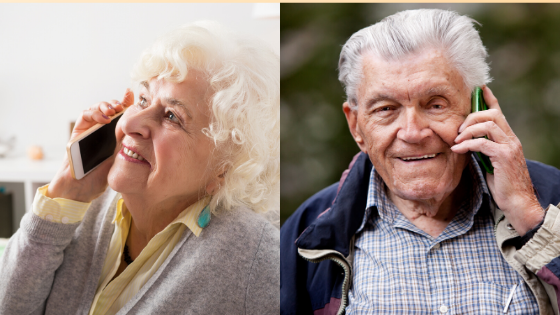
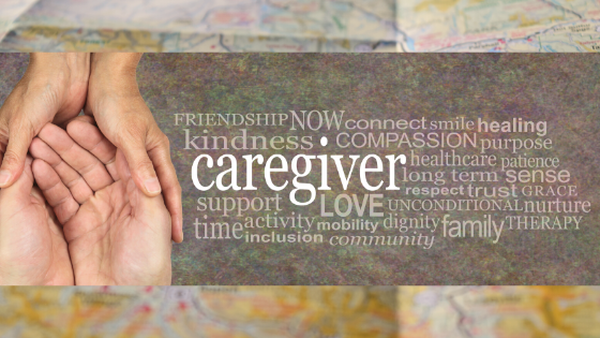
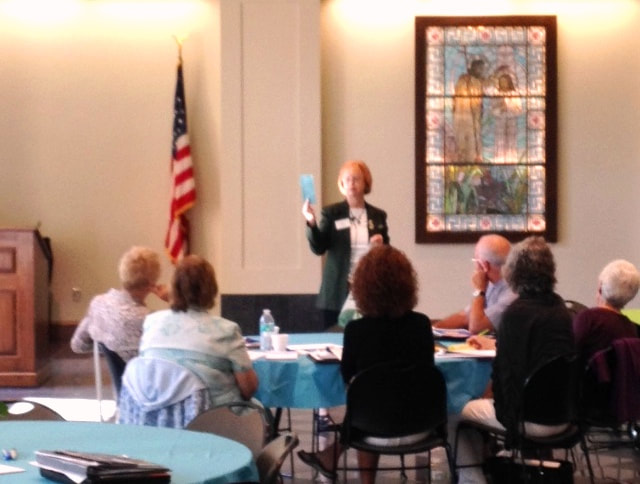

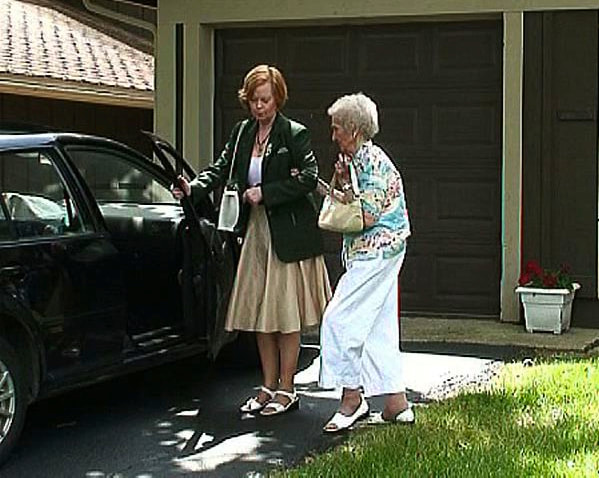
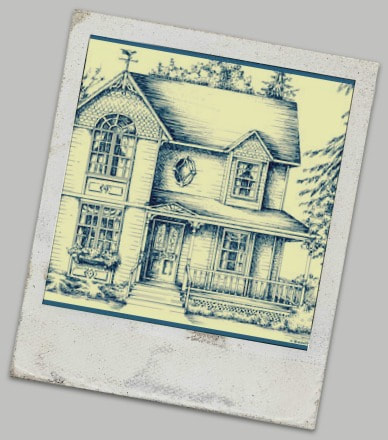
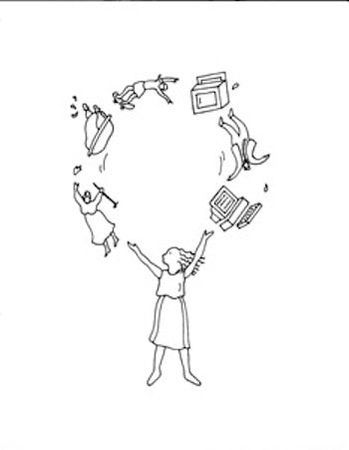
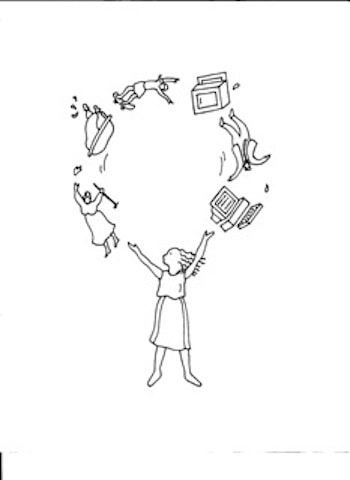
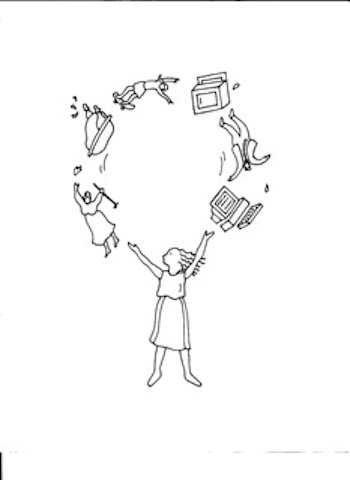
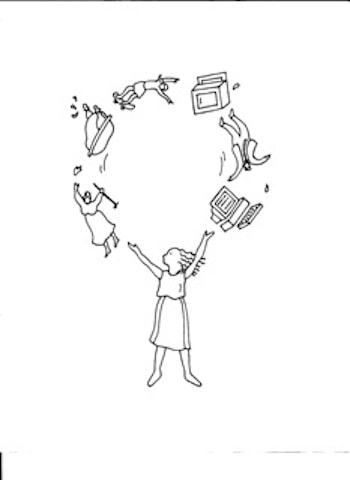
 RSS Feed
RSS Feed